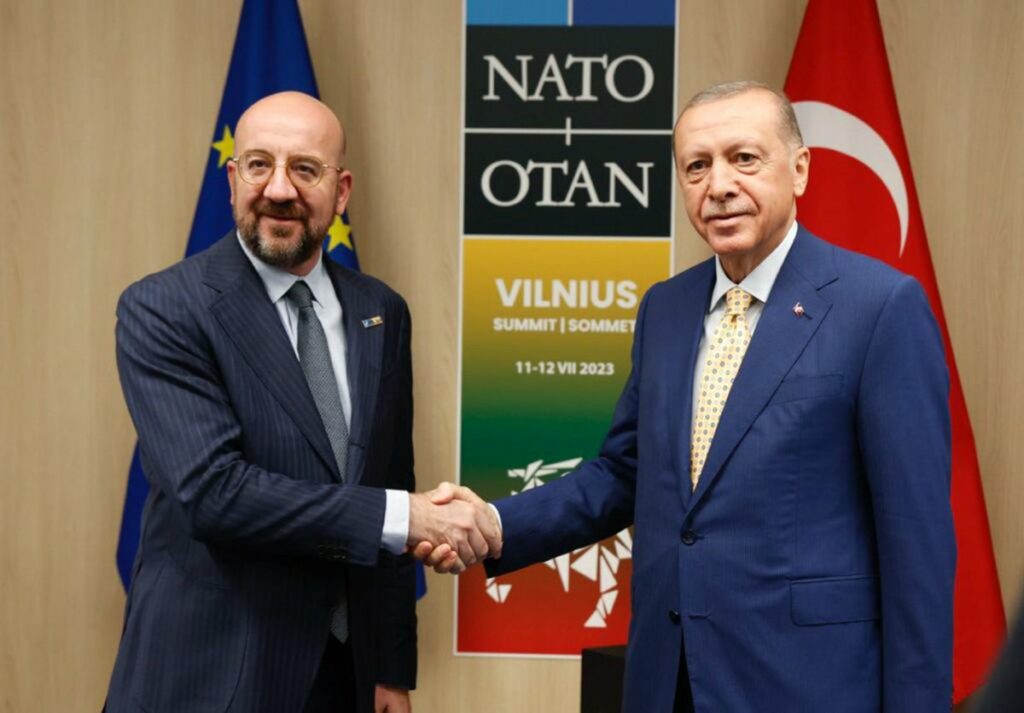Despite recent improvements, the EU’s multibillion-euro funding for refugees in Turkey could have achieved greater value for money and shown more impact, according to an audit report published today by the European Court of Auditors (ECA).
On the positive side, €6 billion Facility for Refugees in Turkey has addressed the needs of refugees and their Turkish host communities. On the negative side, funded projects are behind schedule, and it is uncertain whether they will be sustained once EU support runs out.
In 2015, the EU set up the EU – Turkey Facility (‘Agreement’) to channel and coordinate €3 billion of humanitarian and development aid to the country. Turkey currently hosts more than four million registered refugees, including more than 3.2 million of Syrian origin. Fewer than 5 % still live in camps but ECA had no right to audit them.
Half of the funding comes from the EU budget and the other half from EU member states. Since the start, the EU has allocated €3 billion more to the Facility and over €5 billion has been disbursed in total from it. Additional funding of €3 billion (on top of the €6 billion) has been provided from other EU budget instruments such as pre-accession aid (IPA).
The auditors previously assessed the Facility’s humanitarian strand, and called for better value for money – see special report 27/2018. In this follow-up audit, they focused on the Facility’s development strand.
“In a challenging political context, the EU’s Facility for Refugees in Turkey provided relevant support for refugees and host communities”, said Bettina Jakobsen, the Danish ECA Member who led the audit. “But there could be more value for money and more impact, and it is far from certain what will happen with the projects in Turkey after EU aid runs dry.”
The auditors did not estimate how much has been “overspent” or “wasted” of the EU funding.
“The audit report discloses what everyone involved in the refugee deal already knew: embezzlement, non-transparency, waste and misuse of EU funds,” commented Cengiz Aktar, a Turkish professor in political science at National and Kapodistrian University of Athens. “After this report, it will be more difficult for Brussels to propose another aid package.”
Acting on recommendations the auditors had already made in 2018, the Commission improved the way the Facility works. To address past criticism, it significantly improved the projects that provide cash-assistance to refugees, leading to savings of about €65 million. In addition, it reduced administrative costs, meaning that more money could go to final recipients.
One of the main findings in the report is that the Commission failed to systematically assess whether project costs were reasonable, a failure which puts their efficiency at risk. The auditors applied all three E audit criteria (economy, efficiency, and effectiveness), Bettina Jakobsen told The Brussels Times, with focus on economy and efficiency.
Effectiveness is a matter of goal achievement and depends on the purpose of the Facility. Was it to integrate the refugees in Turkey or to support them temporarily until they can return to Syria and other countries of origin?
Jakobsen replied that it is a political decision to decide if and for how long time the EU funding will continue. “We see difficulties and they will have to be dealt with in negotiations between the EU and Turkey.”
Sustainability at risk
The sustainability of EU interventions and Turkish co-ownership are of paramount importance, so the Commission is working on handing over projects to the Turkish authorities, according to the auditors.
However, it has only managed to ensure the sustainability of infrastructure projects such as schools and hospitals, but not of socio-economic support (i.e. jobs), while its flagship education and health projects are not sure to continue without EU support.
Overall, EU aid ensured swift funding and significant investment to alleviate the pressure on health, education and municipal infrastructure caused by the high influx of refugees into the country, and to avoid tensions on the labour market.
The development projects, following the initial humanitarian aid, suffered major delays for different reasons, such as stricter construction rules since 2018, the COVID-19 pandemic, and rising inflation. The devastating 2023 earthquakes in the country had a significant impact on the projects, too, although the Commission’s response was swift.
The planned projects, such as job-training and business-assistance for refugees, were generally delivered. However, monitoring was insufficient, as it stopped short of measuring impact. Similarly, new schools for refugees were built, but the auditors were unable to obtain sufficient data from the Turkish ministry to assess their impact on beneficiaries.
School attendance is not compulsory for refugee families and about one third of the children do not attend schools although the families would receive economic incentives, according to the audit team.
The insufficiency of monitoring and evaluation is recurring findings in ECA’s audits of EU’s spending programmes but appear to be more absent in the EU – Turkey Facility because of lack of coordination with the Turkish authorities. Two Directorates-General in the Commission (DG NEAR and DG ECHO) have specified the indicators and are responsible for the monitoring.
The Commission also tried to improve the operating environment for international NGOs, but the national authorities’ lack of political will since the attempted military coup in 2016 dampens the impact of its efforts.
Update: The Commission welcomed on Wednesday the audit report and accepted its recommendations. The chief spokesperson recalled that the EU institutions have agreed on extra funding of €2 billon to the Facility until 2027 under the current Multiannual Financial Framework (MFF).
M. Apelblat
The Brussels Times

